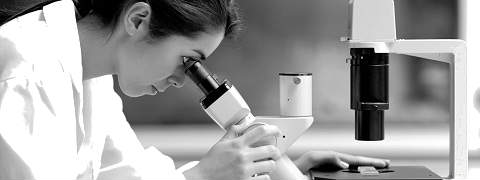الخلايا الجذعية: A Promising Avenue for Chronic Kidney Disease Treatment
مرض الكلى المزمن (مرض الكلى المزمن) يؤثر على الملايين من الناس في جميع أنحاء العالم, leading to significant morbidity and mortality. Conventional treatment options, مثل غسيل الكلى وزراعة الكلى, have limitations. العلاج بالخلايا الجذعية has emerged as a promising avenue to address the unmet medical needs of CKD patients, offering the potential for disease modification and regeneration.
Clinical Trials Offer Hope for Patients with Chronic Kidney Disease
Clinical trials are underway to investigate the safety and efficacy of العلاج بالخلايا الجذعية in CKD. These trials aim to determine the optimal cell type, الجرعة, and delivery method for achieving therapeutic benefits. Early results from clinical trials have shown promising outcomes, providing hope for patients with CKD.
الخلايا الجذعية الوسيطة: Exploring Their Therapeutic Potential
الخلايا الجذعية الوسيطة (اللجان الدائمة) are a type of adult stem cell that has been extensively studied in CKD clinical trials. MSCs possess the ability to differentiate into various cell types, بما في ذلك خلايا الكلى, and have immunomodulatory properties. They have shown promise in improving kidney function, تقليل الالتهاب, and promoting tissue repair.
الخلايا الجذعية المحفزة: A Novel Approach for Kidney Regeneration
الخلايا الجذعية المحفزة (iPSCs) are a type of stem cell derived from adult cells that have been reprogrammed to an embryonic-like state. iPSCs have the potential to differentiate into any cell type in the body, بما في ذلك خلايا الكلى. Clinical trials are exploring the use of iPSCs to generate kidney organoids or tissues for transplantation.
العلاج بالخلايا الجذعية: الوضع الحالي والآفاق المستقبلية
العلاج بالخلايا الجذعية for CKD is still in its early stages of development. Phase I and II clinical trials have demonstrated the safety and feasibility of stem cell transplantation. Phase III trials are ongoing to confirm the long-term benefits and establish the optimal treatment protocols. Further research is needed to refine the techniques, optimize cell delivery, and manage potential risks associated with العلاج بالخلايا الجذعية.
Phase I Clinical Trials: Assessing Safety and Feasibility
Phase I clinical trials focus on evaluating the safety and feasibility of a new treatment. They involve a small number of participants and aim to determine the maximum tolerated dose and identify any adverse effects.
Phase II Clinical Trials: Evaluating Efficacy and Dosage
Phase II clinical trials assess the efficacy and optimal dosage of a treatment. They involve a larger number of participants and aim to gather preliminary data on the effectiveness of the treatment.
Phase III Clinical Trials: Confirming Long-Term Benefits
Phase III clinical trials are large-scale studies that confirm the long-term benefits and safety of a treatment. They involve a large number of participants and compare the treatment to a standard of care or placebo.
زراعة الخلايا الجذعية: Techniques and Considerations
تتضمن زراعة الخلايا الجذعية غرس الخلايا الجذعية في جسم المريض. The delivery method depends on the cell type and the target tissue. Considerations include the route of administration, the number of cells transplanted, and the timing of transplantation.
Immunosuppression in Stem Cell Therapy: Managing Rejection
Immunosuppression is often necessary in العلاج بالخلايا الجذعية to prevent the recipient’s immune system from rejecting the transplanted cells. Immunosuppressive drugs can have side effects, so careful monitoring and management are essential.
Ethical Considerations in Stem Cell Research and Therapy
Stem cell research and therapy raise ethical concerns, particularly regarding the use of human embryonic stem cells. Ethical guidelines and regulations are in place to ensure the responsible and ethical conduct of stem cell research and clinical trials.
العلاج بالخلايا الجذعية holds great promise for the treatment of chronic kidney disease. Clinical trials are ongoing to evaluate the safety and efficacy of various stem cell types and approaches. While further research is needed to refine techniques and optimize treatment protocols, العلاج بالخلايا الجذعية has the potential to revolutionize the management of CKD and improve the lives of patients worldwide.




